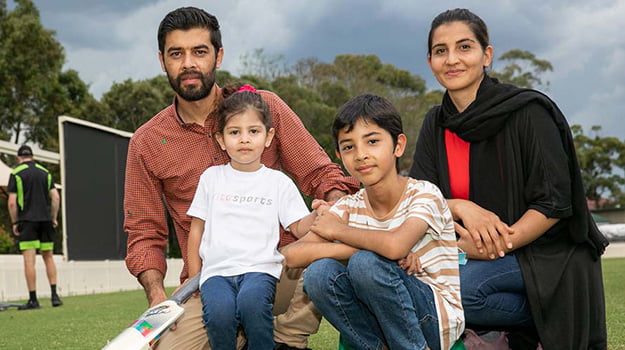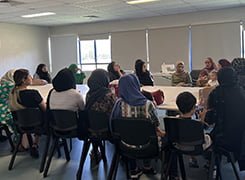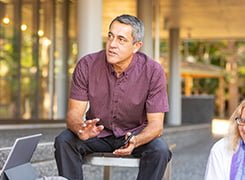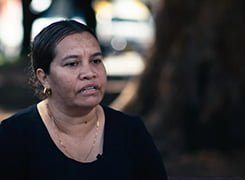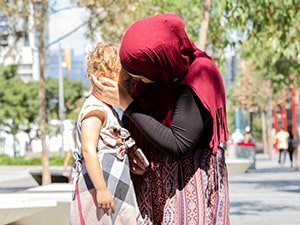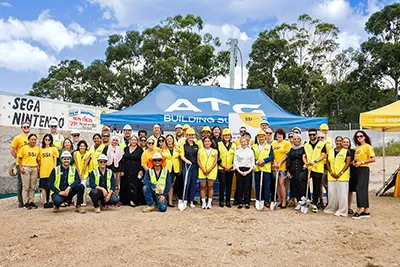07 Feb 2020
Media releasesClaims of refugee unemployment crisis miss basic facts
Acting Immigration Minister Alan Tudge this morning announced a raft of changes to Australia’s refugee settlement programs to lower refugee unemployment rates, which sit at around 77% in the first year of arrival before dropping to 38% after three years and 22% after 10, according to comments reported in The Australian.
Settlement Services International (SSI) CEO Violet Roumeliotis said she welcomed efforts to increase refugees’ economic independence but cautioned against conflating Australia’s humanitarian settlement program with its skilled migration streams.
“Refugees are not granted residency in Australia because of their potential economic contribution. They are not assessed for their skills and experience. They are assessed for their vulnerability – for their exposure to persecution or war. Australia welcomes refugees because we are cognisant of our international protection obligations, not because of what benefit they might bring us,” she said.
“Nonetheless, refugees can and do make significant contributions to Australia’s economy. Researchers consistently agree that any study of the economic contributions of refugees needs to take a long-term perspective. It takes many years for new arrivals to reach their full economic contribution.”
Modelling from Deloitte Access Economics suggests an increase in Australia’s humanitarian intake would actually result in a net economic output of $37.7 billion over the next 50 years and our economy would sustain an average of 35,000 additional jobs.
“SSI supports nearly 10,000 refugees in early settlement in any given year, including close to 5,000 new arrivals. I can tell you that no set of circumstances is alike,” Ms Roumeliotis said.
“Refugees face many unique barriers to employment including lack of local work experience, limited local networks and limited English language proficiency. Some are overcoming complex trauma. Even refugees with strong professional backgrounds like dentists and accountants face a long process of requalification in order to avoid underemployment and realise their full potential in Australia.”
Historic refugee employment data is also influenced by the fact that Australia’s settlement programs have traditionally been skewed towards meeting basic settlement needs, where they now take an integrated approach to independence that focuses on the three Es: education, employment and English, Ms Roumeliotis said.
SSI welcomes today’s commitment from the government for more targeted access to English language courses and encourage greater engagement with the corporate sector through a Refugee and Migrant Services Advisory Council.
“We also commend the decision to establish an alternative employment service model for refugees. The fact of the matter is that Jobactive has not delivered for many participants – even those job seekers who were born in Australia and aren’t dealing with the additional challenges facing refugees,” said Ms Roumeliotis.
“Refugees need a bespoke, local approach that is tailored for their individual circumstances. It’s something the NSW government has trialled with great success in our state, where the Refugee Employment Support Program (RESP) helps nearly one in every four participants secure employment.”
Over the last two and a half years, RESP has engaged with more than 6,800 refugees and placed 1,600 into employment. From the moment a refugee participant makes contact with the program, it takes on average six-and-a-half months to secure a job.
“The way the RESP service delivery model has been designed is the reason for the achievement of such great outcomes. Unlike Jobactive, RESP takes into consideration the key barriers to employment for refugees, including English language proficiency, work experience, recognition of overseas qualifications and education (including pre-employment and employability skills training),” said Ms Roumeliotis.
A particular deficiency in the current Jobactive program is the lack of specialist providers for people from culturally and linguistically diverse backgrounds – something that existed under the previous iteration, Job Services Australia.
“Future employment service providers should be required to demonstrate capacity to be culturally responsive to job seekers from diverse backgrounds, including newly arrived migrants and refugees,” she said.
In SSI’s experience, the key ingredients to support individuals to navigate, enter and remain in the workforce long term are individualised employment pathways, job readiness support, pre-employment training and work experience, effective job-matching and post-employment support.
In regard to the government’s target to increase regional settlement to 50% by 2022, SSI supports this in theory, provided it is done with sufficient community consultation.






